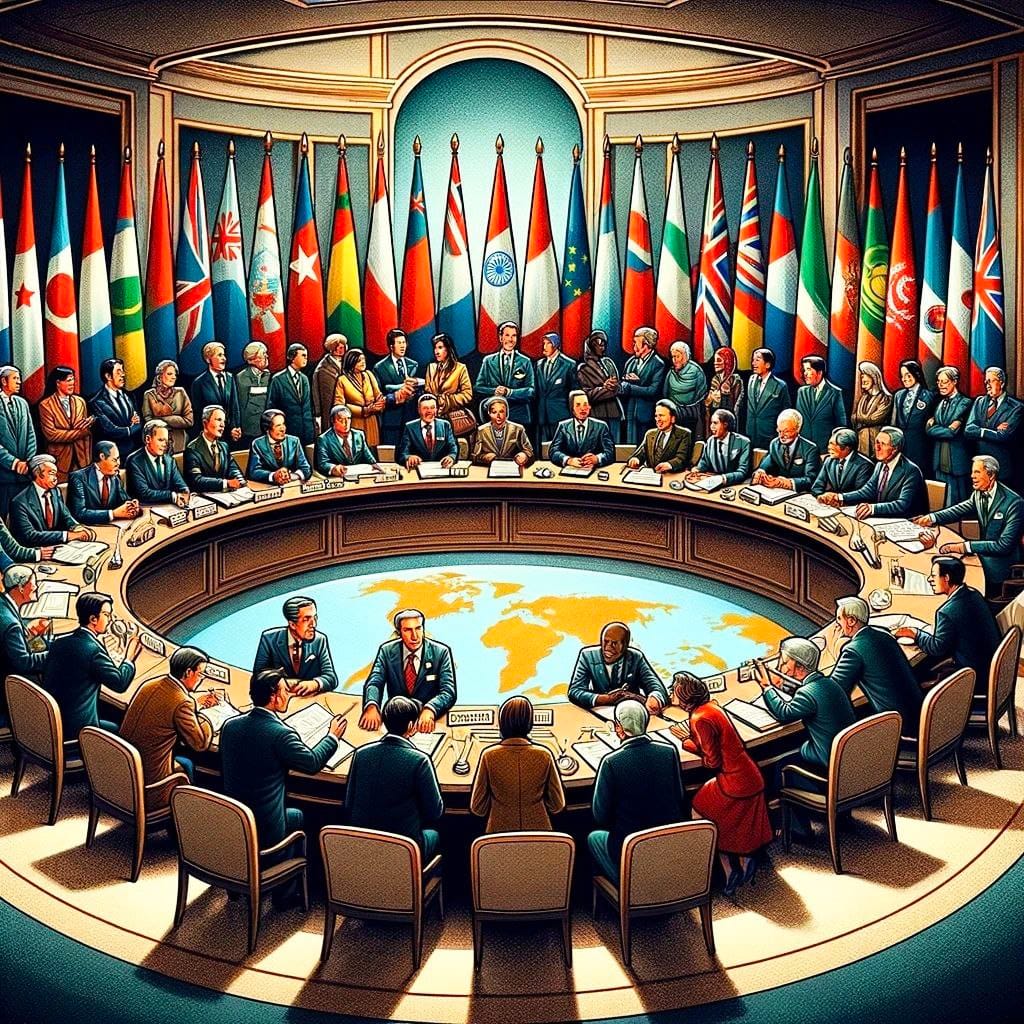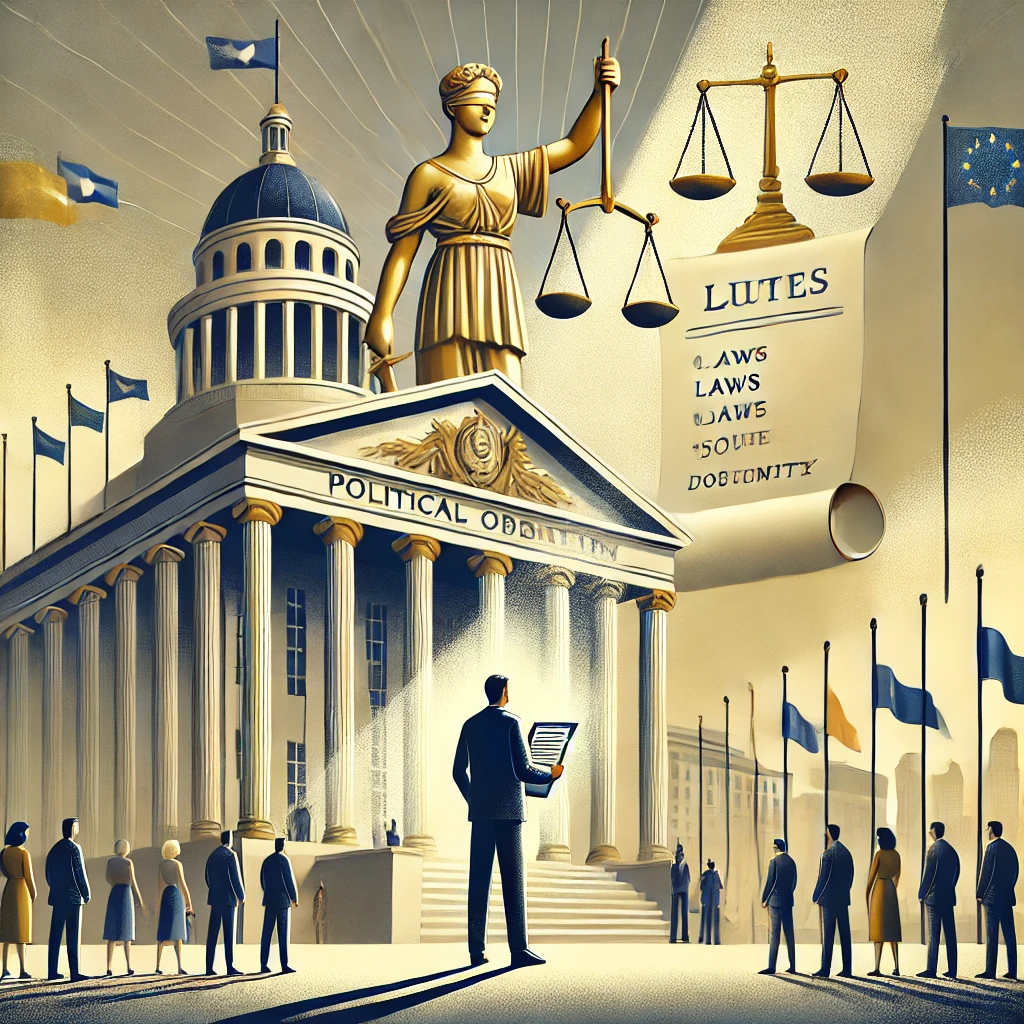Political Obligation : Meaning & Theorie’s
Political Obligation: Meaning and Theories
Political Obligation refers to the moral or legal duty of individuals to obey the laws and support the political institutions of the state in which they live. It is a core concept in political philosophy, focusing on why people should follow laws and accept the authority of the government, and under what conditions such obligations are justified.
Political obligation is essential for the functioning of any political system, as it legitimizes governmental authority and fosters social cohesion.

Meaning of Political Obligation
Political obligation can be understood as the responsibility that citizens have toward their state or government, which often includes:
- Obeying laws.
- Paying taxes.
- Participating in civic duties such as voting or jury service.
- Supporting the institutions that uphold social order and justice.
This concept raises key questions:
- Why should individuals obey the state’s laws?
- Is the obligation to obey absolute, or can it be resisted under certain circumstances (e.g., unjust laws)?
- What are the moral grounds for accepting political authority?

Theories of Political Obligation
Various theories have been developed to explain why individuals are obligated to obey the laws of the state. Each offers a different justification for political obligation:
1. Consent Theory (Social Contract Theory)
- Key Idea: Political obligation arises from the consent of individuals to be governed.
- Explanation: According to social contract theory, individuals enter into an implicit or explicit contract with the state, agreeing to obey its laws in exchange for protection and the benefits of living in a structured society. Thinkers like John Locke, Thomas Hobbes, and Jean-Jacques Rousseau developed this concept, each with their own version of the social contract:
- Hobbes: Individuals consent to obey a sovereign authority to avoid the chaos of the “state of nature” (a life of conflict without government).
- Locke: Political authority is legitimate if it is based on the consent of the governed and if it protects natural rights (life, liberty, and property).
- Rousseau: Political authority should represent the “general will” of the people, with laws reflecting the common good.
- Criticism: Consent theory has been criticized because most people never explicitly consent to being governed, and tacit consent (living within a state) is seen as a weak foundation for such an obligation.
2. Fair Play (Reciprocity) Theory
- Key Idea: Political obligation is based on the principle of fairness in mutually beneficial cooperative schemes.
- Explanation: This theory, developed by H.L.A. Hart, argues that citizens benefit from public goods and services (like security, infrastructure, and healthcare) provided by the state. Since they enjoy these benefits, it is only fair that they contribute by obeying the laws and upholding their civic duties. The basic idea is that those who benefit from the rules must also follow them, as a matter of fairness.
- Criticism: One major criticism is that some individuals may not see themselves as willingly participating in or benefiting from the state’s arrangements, particularly in cases of injustice or exclusion.
3. Gratitude Theory
- Key Idea: Political obligation arises from a sense of gratitude toward the state.
- Explanation: This theory suggests that since individuals benefit from the services and protection provided by the state, they have an obligation to obey its laws out of gratitude. The state provides essential goods like security, education, and infrastructure, which individuals could not easily provide for themselves.
- Criticism: Critics argue that gratitude does not always impose a binding obligation, especially when individuals feel they are forced to accept the state’s benefits or do not believe the state is serving their interests effectively.
4. Utilitarian Theory
- Key Idea: Political obligation is justified if it promotes the greatest happiness or welfare for society.
- Explanation: According to utilitarianism (associated with thinkers like Jeremy Bentham and John Stuart Mill), individuals are obligated to obey the law because doing so maximizes overall well-being or utility in society. Laws that promote the greatest good for the greatest number are morally binding because they serve the collective interest.
- Criticism: The utilitarian theory can justify laws that infringe on individual rights if it benefits the majority. This can lead to situations where the interests of minorities are sacrificed for the happiness of the majority, raising concerns about justice and fairness.
5. Natural Duty Theory
- Key Idea: Individuals have a natural moral duty to support just institutions, regardless of consent.
- Explanation: This theory, advocated by John Rawls and others, suggests that individuals have a moral duty to support institutions that uphold justice, fairness, and human rights. Political obligation is not based on consent or benefits but on the moral duty to contribute to the functioning of a just society. People are obligated to obey the law if the institutions are just, whether or not they have explicitly consented.
- Criticism: Natural duty theory assumes a universal obligation to support just institutions, but this can be problematic if individuals disagree on what constitutes a “just” institution.
6. Associative Theory
- Key Idea: Political obligation arises from membership in a political community.
- Explanation: This theory holds that individuals have obligations to their political community because they are members of it. Just as family members have obligations toward each other, citizens owe loyalty and obedience to their state because of their connection to it. Thinkers like Michael Walzer emphasize the importance of communal bonds and shared history in creating obligations.
- Criticism: Critics argue that membership in a community is often involuntary, and individuals born into a state may not see this as sufficient justification for being bound by its laws.
Conclusion
Political obligation is a complex concept with various competing theories offering different justifications. Consent theory focuses on voluntary agreement, fair play theory emphasizes reciprocity for the benefits received, gratitude theory suggests we owe the state for its services, utilitarian theory appeals to the overall happiness of society, natural duty theory stresses a moral obligation to support justice, and associative theory draws on the importance of community membership.
Each theory provides a framework for understanding why citizens should or should not obey the laws and uphold their civic duties, though none is without criticism. The debate over political obligation continues to be a vital discussion in political philosophy, especially in democratic societies where the legitimacy of authority and the conditions under which it should be obeyed are constantly examined.



Post Comment